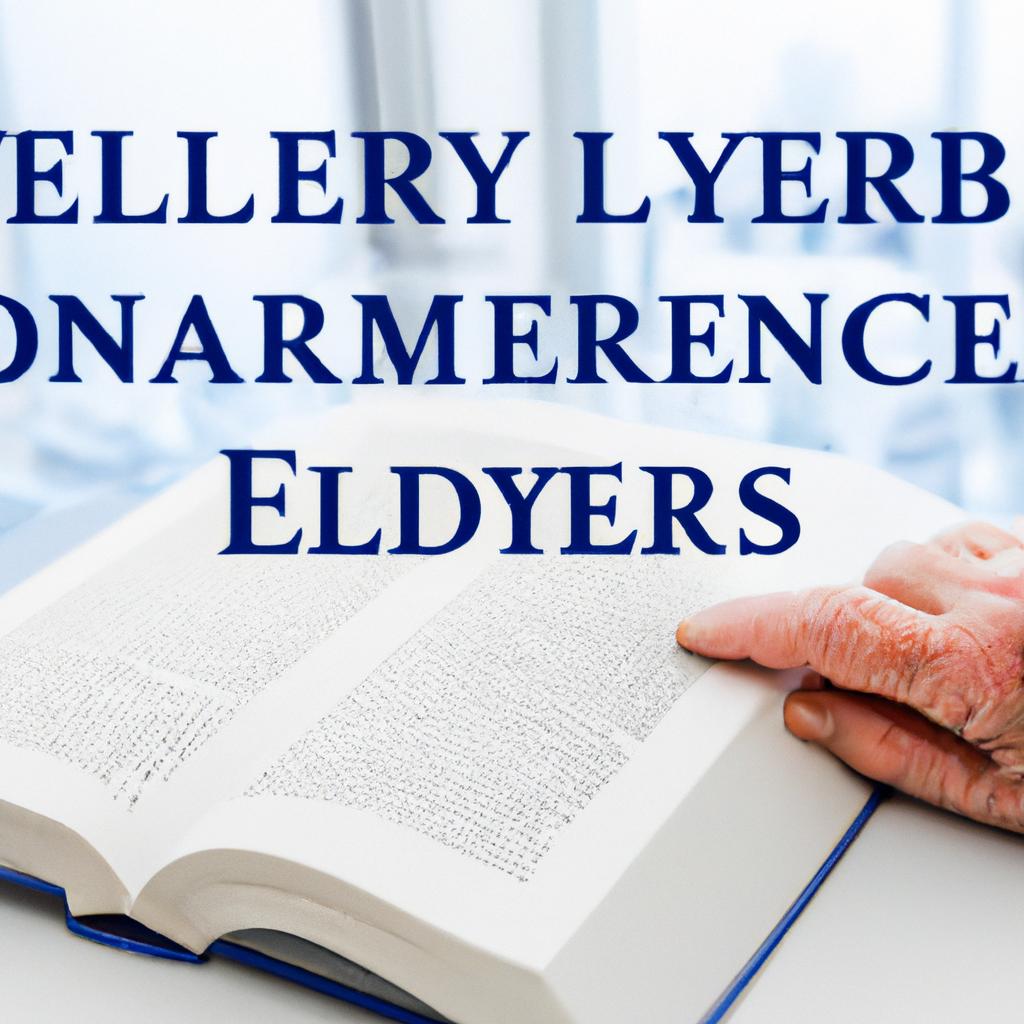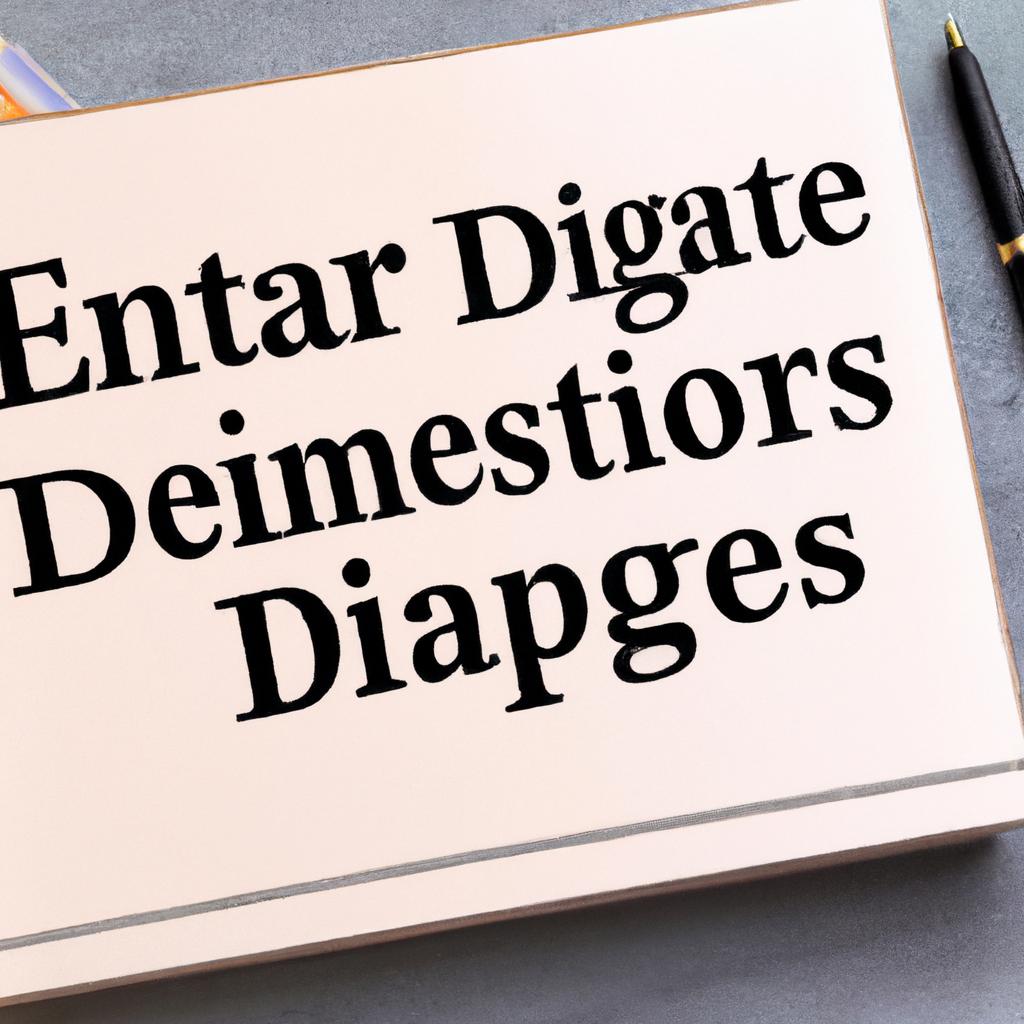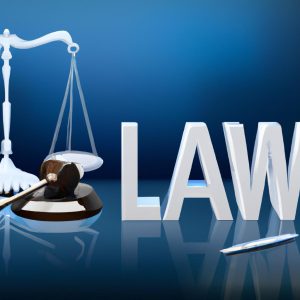As a seasoned practitioner in the field of elder law in the state of New York, it is imperative to have a comprehensive understanding of the legal intricacies that pertain to the elderly population. In this article, we will delve into the realm of elder law in New York, providing an overview of the regulations, protections, and benefits that are available to seniors. From Medicaid planning to guardianship issues, our team at Morgan Legal Group is well-equipped to navigate the complexities of elder law with precision and expertise. Join us as we explore the nuances of this specialized area of law and its implications for the aging population in the Empire State.
Understanding the Key Components of Elder Law in New York
In order to fully comprehend Elder Law in New York, it is essential to understand the key components that govern this area of law. One of the primary focuses within Elder Law is ensuring the protection and well-being of older individuals. This involves addressing a variety of legal issues that specifically impact the elderly population.
- Long-term Care Planning: This involves creating a plan for future care needs, including nursing home care, home health care, and other long-term care services.
- Medicaid Planning: Understanding the complex rules and regulations surrounding Medicaid eligibility and planning for long-term care costs.
- Guardianship: Establishing legal guardianship for individuals who are unable to make decisions for themselves due to incapacity.
Additionally, Elder Law in New York encompasses issues related to estate planning, healthcare decision-making, elder abuse prevention, and more. By consulting with an experienced Elder Law attorney, individuals can navigate these intricate legal matters with confidence and peace of mind, knowing that their best interests are being protected.
- Estate Planning: Drafting Wills, trusts, and advance directives to ensure that assets are distributed according to one’s wishes and that healthcare decisions are made in accordance with their preferences.
- Elder Abuse Prevention: Taking steps to prevent and address instances of elder abuse, neglect, or exploitation.

Navigating the Complexities of Medicaid Planning for Seniors
When it comes to in New York, it is crucial to understand the intricacies of elder law in the state. Elder law encompasses a wide range of legal issues that affect seniors, including Medicaid planning, long-term care planning, estate planning, and more. In New York, there are specific laws and regulations that govern Medicaid planning for seniors, and it is important to work with an experienced elder law attorney who understands the nuances of these laws.
At Morgan Legal Group, our team of dedicated attorneys specializes in elder law and has extensive experience helping seniors and their families navigate the complexities of Medicaid planning. We understand the importance of preserving assets while ensuring that seniors receive the care and support they need. Our attorneys can help you create a comprehensive Medicaid plan that meets your individual needs and goals, ensuring that you can access the care you need without jeopardizing your financial security. Contact us today to learn more about how we can help you with your Medicaid planning needs.

Ensuring Proper Asset Protection and Long-Term Care Planning for the Elderly
Elder law in New York is a complex and ever-evolving area of legal practice that focuses on . At Morgan Legal Group, we understand the unique challenges and legal issues that seniors face as they age, and we are dedicated to providing comprehensive legal services to meet their needs.
Whether you are looking to create a comprehensive estate plan, establish a trust, or navigate the intricacies of Medicaid and long-term care planning, our experienced team of attorneys is here to help. We work closely with our clients to develop personalized solutions that address their specific concerns and goals, ensuring that their assets are protected and their wishes are carried out effectively. With our expertise in elder law and a commitment to client satisfaction, you can trust Morgan Legal Group to guide you through the complexities of planning for the future.

Comprehensive Guide to Estate Planning and Advance Directives for New York Seniors
In the state of New York, Elder Law encompasses a wide range of legal issues that are specifically relevant to seniors. This area of law focuses on the unique needs and challenges that elderly individuals face as they age. One of the key components of Elder Law in New York is estate planning, which involves creating a comprehensive plan for the distribution of one’s assets upon death. Through proper estate planning, seniors can ensure that their loved ones are taken care of and their wishes are carried out.
Advance directives are another important aspect of Elder Law in New York. These legal documents allow seniors to make decisions about their healthcare in advance, in the event that they are incapacitated and unable to make those decisions for themselves. Advance directives can include a healthcare proxy, a living will, and a Do Not Resuscitate order. By creating advance directives, seniors can provide clear instructions to their healthcare providers and loved ones about their medical wishes and preferences.
Q&A
Q: What is elder law and why is it important?
A: Elder law focuses on legal issues that affect the aging population, such as healthcare, long-term care, guardianship, and estate planning. It is important because as people age, they may face unique legal challenges that require specialized knowledge and assistance.
Q: What are some common legal issues faced by seniors in New York?
A: Seniors in New York may encounter issues such as Medicaid planning, living wills, powers of attorney, and protection against elder abuse. They may also need help with estate planning, including wills, trusts, and probate.
Q: How can an elder law attorney help seniors navigate these issues?
A: An elder law attorney can provide guidance and representation to seniors in New York, helping them create estate plans that meet their needs, apply for Medicaid benefits, and protect their rights in cases of elder abuse or exploitation. They can also help seniors with guardianship and other legal matters.
Q: What are some resources available to seniors in New York seeking legal assistance?
A: Seniors in New York can contact the New York State Bar Association for referrals to elder law attorneys, as well as local Legal Aid organizations for free or low-cost legal assistance. They can also reach out to local senior centers and advocacy groups for support and information.
Q: How can individuals prepare for their future legal needs as they age?
A: It is important for individuals to plan ahead by creating an estate plan, including a will, a trust, and powers of attorney. They should also make sure their healthcare wishes are documented in a living will and discuss their plans with family members and loved ones. Seeking advice from an elder law attorney can help ensure their wishes are carried out and their rights protected as they age.
In Conclusion
In conclusion, understanding elder law in New York is essential for ensuring the well-being and protection of our senior citizens. By familiarizing ourselves with the various legal issues and considerations that affect older individuals, we can better advocate for their rights and provide them with the support and resources they need. As we navigate the complex landscape of elder law, let us strive to uphold the dignity and rights of our elderly population, ensuring that they are treated with the respect and care they deserve. Thank you for joining us on this overview of elder law in New York.
 An Overview Of Elder Law In New York
An Overview Of Elder Law In New York
Elder law is an area of legal practice that specializes in serving the needs of senior citizens. As our population continues to age, the need for comprehensive and specialized legal services for older adults is becoming increasingly important. In New York, the elder law landscape is constantly evolving, and it is crucial for seniors and their families to have a basic understanding of the laws and resources available to them.
Navigating the legal complexities of elder law can be daunting, especially for those who are not familiar with the intricacies of the system. This article aims to provide an overview of elder law in New York, covering the basic concepts and resources that are available to seniors and their families.
What Is Elder Law?
Elder law is a unique area of legal practice that focuses on issues that affect older adults, including estate planning, retirement planning, long-term care, and other legal concerns. It encompasses a wide range of topics, such as Medicare and Medicaid planning, guardianship, and wills and trusts.
One of the primary goals of elder law is to help seniors and their families plan and make decisions for their future. It takes into account not only legal matters but also the physical, emotional, and financial well-being of older adults. In New York, elder law attorneys are trained to handle complex and sensitive issues that come with aging and provide guidance and support to seniors and their loved ones.
Benefits Of Planning Ahead
It is never too early to start planning for the future, and this is especially true for seniors and their families. By creating a solid elder law plan, individuals can ensure that their wishes are respected and their best interests are protected in case of incapacity or death.
Here are some key benefits of planning ahead with the help of an elder law attorney in New York:
– Avoiding probate: Probate is a legal process that occurs after a person passes away. It can be time-consuming, expensive, and public. Through proper estate planning, individuals can avoid probate and ensure that their estate is distributed according to their wishes.
– Maintaining control over healthcare decisions: By creating advance directives, such as a living will and healthcare power of attorney, individuals can determine who will make medical decisions on their behalf if they become unable to do so.
– Protecting assets: Long-term care can be costly, and without proper planning, seniors risk losing their life savings to medical bills. An elder law attorney can help individuals protect their assets through strategies such as Medicaid planning and long-term care insurance.
– Ensuring a smooth transition of assets: Through wills and trusts, individuals can specify how their assets will be divided among their beneficiaries, minimizing conflicts and administrative burdens for their loved ones.
– Providing for loved ones with special needs: Elder law attorneys can help create special needs trusts to ensure that individuals with special needs are provided for without jeopardizing their eligibility for government benefits.
– Peace of mind: Perhaps the most significant benefit of elder law planning is peace of mind. By having a clear plan in place, individuals and their families can focus on enjoying their time together without worrying about unforeseen legal issues.
Key Areas Of Elder Law In New York
While elder law covers a wide range of legal issues, here are some key areas that are particularly relevant to seniors in New York:
Medicare and Medicaid Planning
Medicare and Medicaid are government programs that provide healthcare coverage to seniors and low-income individuals, respectively. Both programs have specific eligibility criteria, and understanding the rules and regulations can be challenging. An elder law attorney can help individuals navigate the complexities of these programs and ensure that they receive the benefits they are entitled to.
Guardianship
Guardianship is a legal arrangement in which a court appoints someone to make decisions for an individual who is unable to make decisions for themselves, such as a senior with dementia. In New York, guardianship proceedings can be complicated and expensive. An elder law attorney can help individuals understand their options and guide them through the court process.
Estate Planning
Estate planning is a crucial aspect of elder law that involves creating a plan for the distribution of assets after death. It can also involve creating strategies to minimize estate taxes and protect assets from creditors and other potential threats. An elder law attorney can help seniors and their families develop a personalized estate plan that meets their specific needs and goals.
Long-Term Care Planning
As people age, the likelihood of needing long-term care increases. Long-term care can be expensive, and without proper planning, it can quickly deplete a person’s savings. An elder law attorney can help individuals plan for potential long-term care needs and find ways to pay for it, such as through long-term care insurance or Medicaid.
Social Security
Social Security is a government program that provides financial assistance to seniors and disabled individuals. For many seniors, Social Security benefits are a significant source of income. An elder law attorney can help individuals understand their options and ensure that they receive the benefits they are entitled to.
Resources For Seniors And Their Families In New York
New York offers several resources for seniors and their families to access information and assistance when it comes to elder law matters. Here are some key resources worth exploring:
– New York State Bar Association’s Elder Law and Special Needs Section – This section of the New York State Bar Association offers a variety of resources and education programs for attorneys, seniors, and their families.
– New York State Office for the Aging – The state office for aging provides a wide range of programs and services to support older adults in New York.
– New York State Department of Health – This department offers information on Medicare and Medicaid, as well as resources for long-term care planning.
– SeniorLegalNYC – This program offers free legal assistance to low-income seniors in New York City.
Conclusion
Elder law is a complex and continually evolving area of law that is crucial for seniors and their families to understand. By working with an experienced elder law attorney, individuals can create a comprehensive plan for their future and gain peace of mind knowing that their wishes will be respected. As we age, it is essential to plan ahead and take advantage of the resources available to us to ensure a smooth transition and a comfortable retirement.







